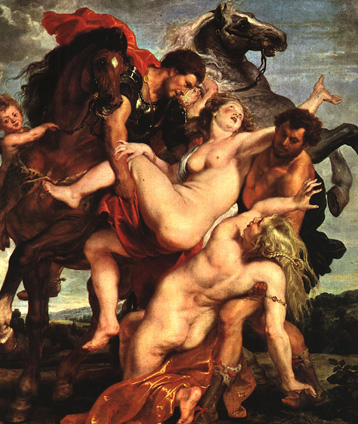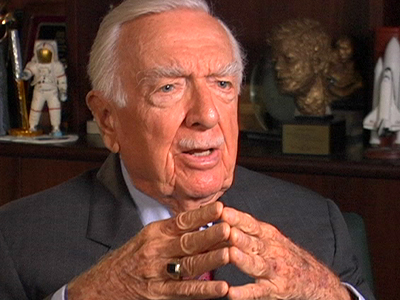 NEW YORK – Walter Cronkite, the legendary newsman, died Friday evening at the age of 92. An outpouring of respect and remembrance has been non-stop ever since. Every newspaper in the country has published a story on the passing, and rightly so. Cronkite was one of only a few journalists who defined the profession for the modern age, and whose celebrity matched his accomplishments.
NEW YORK – Walter Cronkite, the legendary newsman, died Friday evening at the age of 92. An outpouring of respect and remembrance has been non-stop ever since. Every newspaper in the country has published a story on the passing, and rightly so. Cronkite was one of only a few journalists who defined the profession for the modern age, and whose celebrity matched his accomplishments.
Most coverage will contain the phrase, “the most trusted man in America,” a label Cronkite certainly found amusing and absurd even as he relished it. As true as it was on its face, it also was a stamp of accomplishment – a summing up, an early epitaph of sorts – that a real news hound might find ill-suited if not utterly inappropriate to the profession.
The challenge of journalism never gets easier and may actually get harder the more miles one has under one’s belt, the more embedded with the power structure one becomes, and certainly the more comfortable one becomes.
In Cronkite’s day, before cable news and the Internet, it would be hard to exaggerate the role of the nightly network newscasts as the main source of news and information for millions of Americans. The stories they chose to cover, and the manner in which they covered them, exerted an influence that exceeded that of the William Randolph Hearst publishing empire earlier in the century.
While neither Cronkite, Huntley or Brinkley would have ever dared to proclaim that they could elect or deny someone the presidency of the nation, they and the corporations they worked for were well aware of their growing influence. It is precisely Cronkite’s awareness and sensitivity to that influence that no doubt helped hone his own vigilance over his personal ethics and the role of journalism in general.
Tragically, it must be remembered, especially now, Cronkite felt that attempts by him and others to “establish some standards” for American journalism failed in the end. “We couldn’t find a way to pass them on to another generation,” he said, only last month.
To his everlasting credit, Glen Greenwald has posted an excoriating review of the majority of the post-mortem celebrations of Cronkite’s work and life, pointing out correctly that it does the man no honor to remember the broad outlines of the man while ignoring what he really did, how he really stood up to powerful government interests in the face of intimidating pressure or even worse, corporate disapproval or potential censure.
Speaking of another iconoclast journalist, David Halberstam, who proudly stood up to menacing generals during the Vietnam war, Greenwald observes, “Can anyone imagine any big media stars – who swoon in reverence both to political power and especially military authority – defying military instructions that way, let alone being proud of it?”
While the complaint may indeed be somewhat moot in today’s world, where fewer people than ever get their news from single sources, and the influence of the network anchors has waned, the lessons from this passing generation of giants may in fact be more important now, in our increasingly discordant environment, than they were back then, when the world also seemed on the brink.
Indeed, the seeds of today’s divisions planted in the middle of the last century as the world recovered from World War II, grappled with Cold War ideologies and struggled to find a path toward peace in the aftermath of the Vietnam War and the collapse of the Soviet Union, contiue to mature. Some believe they were actually planted much farther back, during our own civil war, and they may be right, but the modern incarnations of those older wounds, whenever tey werde first inflicted, reached their tipping point during the 1050s, 1960s and 1970s, during the Cronkite years.
As beloved and “trusted” as Cronkite was and still is, he was, in fact, highly distrusted and even hated by many on the right, and remains a polarizing figure for some. This was no more evident than it was the Sunday after his death, when the panel on Fox News Sunday was asked for their reaction to Cronkite’s passing, and to explain why, so many years after he had been on the air, so many people have been so affected by his death.
William Kristol, the incorrigible neo-con who came of age during those contentious decades, said that Cronkite was beloved because back then so many people watched network news. “Our family watched Huntley/Brinkley, not Cronkite,” he added. That’s it. People trusted him because of the simple fact of his visibility.
In fact, Walter Cronkite has been missed and will continue to be missed because of his authority as a newsman and because he truly was fair, balanced and ethical. He also lived the courage of his convictions.
He will be missed because he actually embodied credibility, and not only, as Charles Krauthammer said on the same Fox program, during the big moments, but in the small moments, too, where they matter as much, if not more.









No Comment